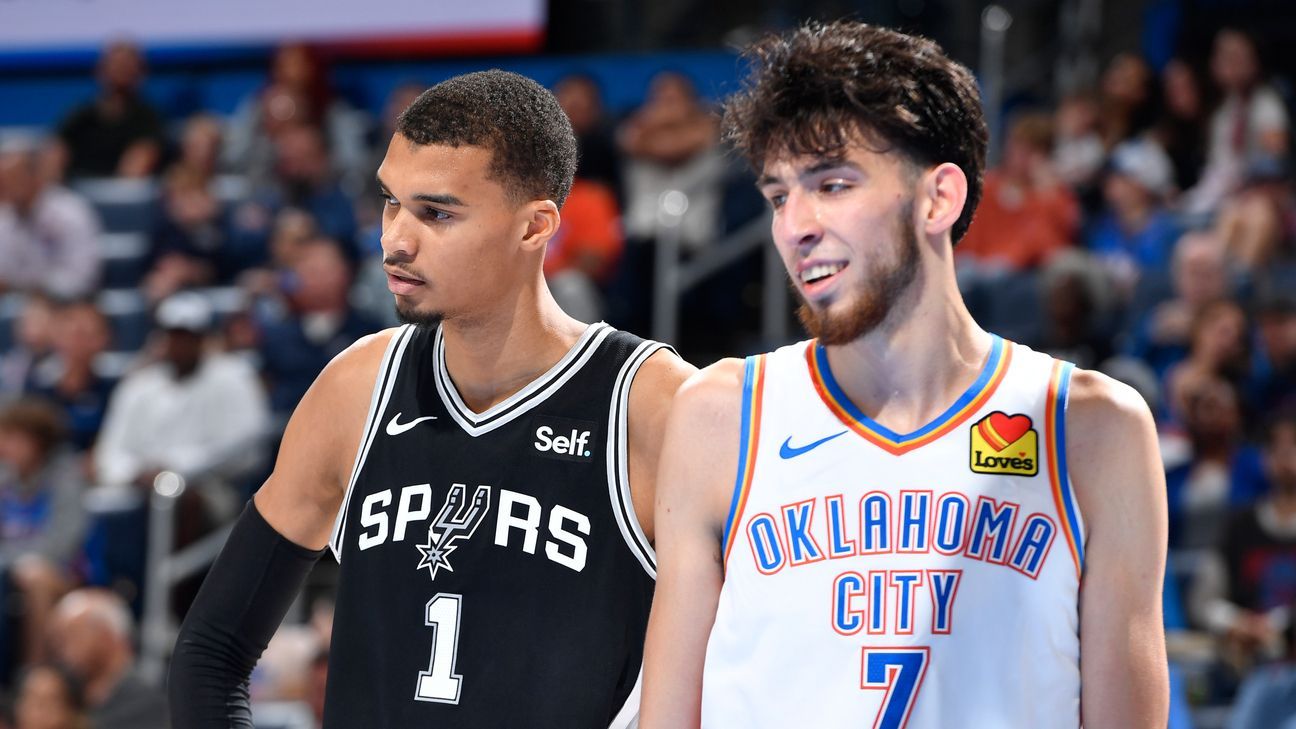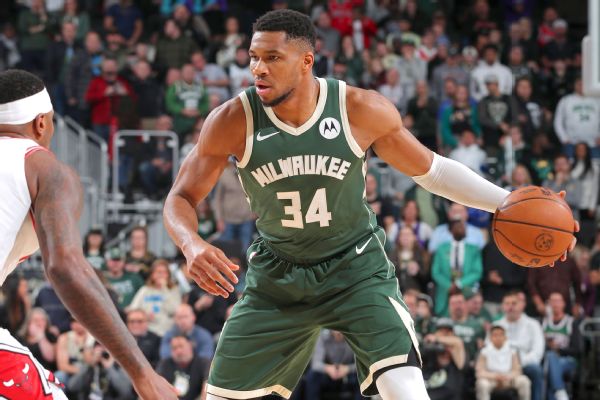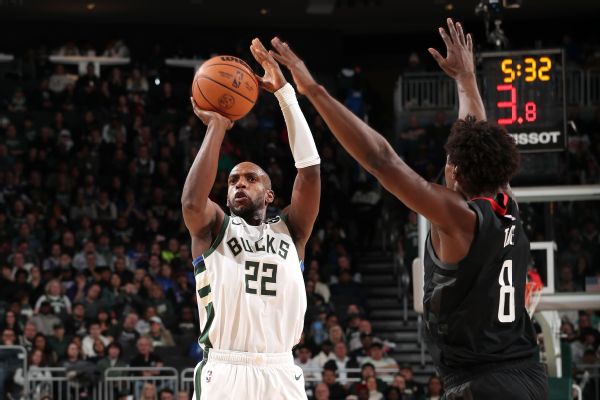After just 10 games, Victor Wembanyama is on pace to have a rookie season as good as or perhaps even better than LeBron James’ in 2003-04. Yet, Wembanyama might not be having the best season of his rookie class.
Chet Holmgren is also on a historic pace for a rookie, among the best this millennium. Another rookie quietly tossing his hat into the Rookie of the Year discussion is Ausar Thompson.
Ahead of Wembanyama and Holmgren’s first regular-season showdown in the NBA’s in-season tournament, let’s take a look at how both compare to one another, the rest of the rookie class and history.
Wembanyama (-350) is the odds-on favorite to win Rookie of the Year at ESPN BET, meaning you would have to bet $350 on him in order to win $100. Holmgren has the second-shortest odds at +400. No other rookie has odds shorter than +4000, making any other winner besides Wemby or Holmgren an extreme long shot at this point.
Here is a look at the production of the five rookies with the shortest RoY odds to date:
A few things jump out at me. Wembanyama is leading all rookies in scoring and producing more volume than Holmgren as a scorer, rebounder and shot-blocker. However, Holmgren has a slightly higher average in fantasy points per game (FP/G) because he has been more efficient offensively. Holmgren’s true shooting percentage (a stat that measures scoring efficiency accounting for field goal percentage, free throw percentage and 3-pointers) is tied for the seventh best in the NBA, elite for a volume scorer.
Only Luka Doncic (32.8 PPG, 66.3 TS%), Stephen Curry (30.7 PPG, 68.6 TS%), Nikola Jokic (29.8 PPG, 66.8 TS%) and Kristaps Porzingis (19.7 PPG, 70.5 TS%) have a higher scoring average than Holmgren. When accounting for scoring efficiency and turnovers, Holmgren is using about eight fewer possessions than Wemby to generate only three fewer team points per game.
Wembanyama and Holmgren both rank top-four in the NBA in blocked shots per game, positioning them to also be viable candidates for Defensive Player of the Year as rookies.
Ausar Thompson is producing at a level much more similar to Wemby and Holmgren than the rest of the rookie class. He leads all rookies in rebounds per game and is producing elite defensive statistics.
Now, let’s compare Wembanyama and Holmgren to the top four Rookie of the Year winners since 2000.
The early trends are pretty interesting.
Wembanyama’s fantasy scoring average is tied with Karl-Anthony Towns, the third-highest full-season average among players that won Rookie of the Year this millennium. Towns was a unanimous ROY winner in 2016, taking all 130 first-place votes.
Holmgren’s fantasy scoring average is second on the list only to Ben Simmons, just ahead of Blake Griffin for the highest mark since 2000. Holmgren, like Simmons and Griffin, is a rookie playing in his second season, after missing last year with an injury.
Wembanyama’s plus-minus profile looks similar to those of Griffin, Towns and LeBron. In all four cases, their on-court +/- per 100 possessions is negative but their on-court/off-court plus-minus is positive. This indicates that, while their teams were outscored by a bit with them on the court, they were outscored by even more without them. Wemby’s on/off-court value is high, but that number can be inflated this early in the season. Still, this speaks to his presence having a strong positive impact on the rebuilding San Antonio Spurs.
On the other hand, Holmgren’s plus-minus profile looks more similar to Simmons’. In both cases, their teams were outscored when they were out of the game. But, with them on the court, they outscored their opponents by a significant amount. This speaks to Holmgren providing strong on-court value that lifts an otherwise marginal team into playoff contention. Again, it is early, but providing that type of lift, as a rookie, on a team with playoff aspirations is valuable and rare.
One last note: Ausar Thompson’s 34.0 FP/G would slot in as the seventh-best fantasy scoring season among ROY winners since 2000, behind the four mentioned above, John Wall in 2011 (35.9 FP/G), Deandre Ayton in 2019 (35.2 FP/G) and just ahead of Ja Morant in 2020 (33.8 FP/G).
While Thompson is currently +4000 to win this year’s Rookie of the Year, he is competing with two special talents that are have historic starts to their own rookie campaigns. It is safe to say Thompson would legitimately compete to win Rookie of the Year many other seasons. This makes him an interesting dark-horse candidate to continue to follow in an NBA season where anything can happen.


